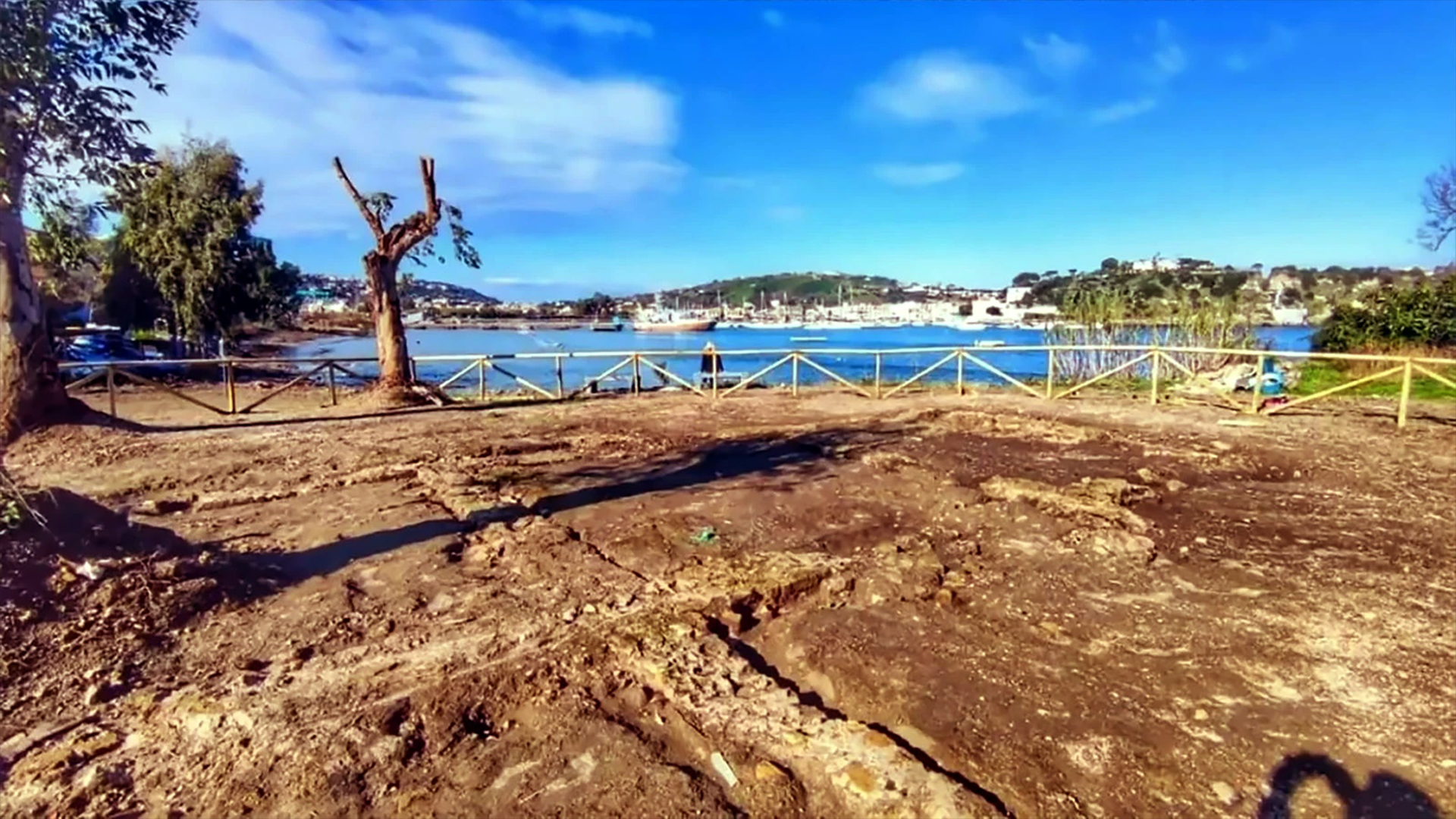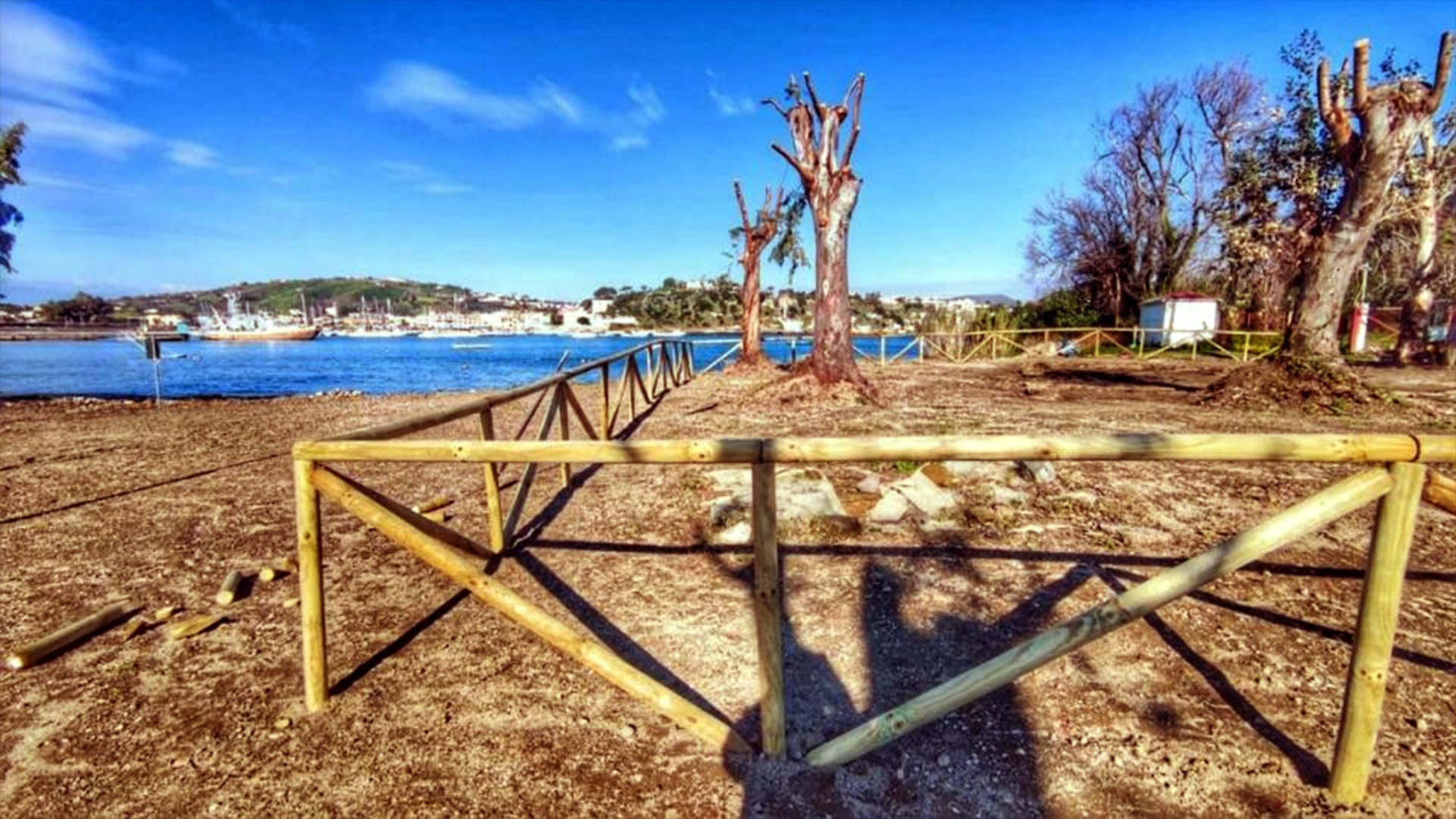1st-century villa discovered near Mount Vesuvius may be where Pliny the Elder watched catastrophic eruption
Archaeologists think the luxurious villa was where Pliny the Elder first witnessed the massive volcanic eruption that would later claim his life.

Get the world’s most fascinating discoveries delivered straight to your inbox.
You are now subscribed
Your newsletter sign-up was successful
Want to add more newsletters?

Delivered Daily
Daily Newsletter
Sign up for the latest discoveries, groundbreaking research and fascinating breakthroughs that impact you and the wider world direct to your inbox.

Once a week
Life's Little Mysteries
Feed your curiosity with an exclusive mystery every week, solved with science and delivered direct to your inbox before it's seen anywhere else.

Once a week
How It Works
Sign up to our free science & technology newsletter for your weekly fix of fascinating articles, quick quizzes, amazing images, and more

Delivered daily
Space.com Newsletter
Breaking space news, the latest updates on rocket launches, skywatching events and more!

Once a month
Watch This Space
Sign up to our monthly entertainment newsletter to keep up with all our coverage of the latest sci-fi and space movies, tv shows, games and books.

Once a week
Night Sky This Week
Discover this week's must-see night sky events, moon phases, and stunning astrophotos. Sign up for our skywatching newsletter and explore the universe with us!
Join the club
Get full access to premium articles, exclusive features and a growing list of member rewards.
An excavation to build a playground near Naples, Italy, has revealed an ancient seafront villa thought to be where the Roman philosopher Pliny the Elder witnessed the eruption of Mount Vesuvius in A.D. 79.
The eruption destroyed Pompeii and devastated other towns in the region, possibly killing up to 16,000 people, including Pliny.
Pliny, whose real name was Gaius Plinius Secundus, had famously sailed from his home toward the eruption in an attempt to rescue some of the people afflicted by it. His nephew and adopted son, Pliny the Younger (Gaius Plinius Caecilius Secundus) wrote in a letter that he witnessed the elder Pliny's death a few hours later, when he was overcome by toxic gas from the volcano.
The newly excavated villa is at Punta Sarparella, northwest of Naples in the town of Bacoli, which in the first century was the port city of Misenum where Pliny the Elder commanded a Roman naval fleet.
Related: 2 hidden male skeletons discovered under pile of rubble in Pompeii's 'House of the Chaste Lovers'
While archaeologists suggest the villa also also might have belonged to another wealthy Roman, it matches Pliny's descriptions and has a prominent view of Mount Vesuvius, which is about 20 miles (30 kilometers) away, across the bay.
The newfound villa gives "maximum visibility of the entire port basin and a wide view of the entire Gulf," representatives from Italy's Ministry of Culture said in a statement. "This would have been, perhaps, the promontory [a high point of land above the sea] from which Pliny the Elder, who held the office of Praefectus classis Misenensis [the commander of the Misenum fleet] would have seen the eruption of Vesuvius."
Get the world’s most fascinating discoveries delivered straight to your inbox.
Playground find
The remains of the villa were found after three years of work to remove a swimming pool from the site and build a playground, according to the statement.
Italian Ministry of Culture archaeologist Simona Formola said some of the villa's remaining walls were built from diamond-shaped blocks of soft limestone called tufa, decoratively arranged like a net, that extended onto the beach and into the water.
It's thought Pliny entertained many of the Roman elite at banquets in the villa's garden courtyard. If the villa was owned by Pliny, it was one of several he maintained in picturesque locations around Italy.
The archaeological excavations will continue for several months; the researchers hope to find out more about the villa itself as well as about Misenum, which was an important Roman naval base.
Formola told CNN that the excavation of deeper layers could reveal more rooms of the villa and possibly even frescoes.
Historical volcano
Pliny was born into a wealthy Roman family and rose through the Roman Army. In his fifties he was appointed commander of the Misenum fleet, which protected the coast from pirates. He was also a prolific writer; many of his books have now been lost, but he is best known for "Natural History," in which he tried to record everything known about the world.
"Naturalis Historia remains a classic today, with some arguing it is the first encyclopaedia ever written," Sue Alcock, an archaeologist at the University of Oklahoma, told Live Science in an email.
"The 37-volume work presented contemporary knowledge of zoology, botany, geology, mineralogy, astronomy, and technology, as well as a near unique discussion of the art and artists of his day," said Alcock, who wasn't involved in the villa's discovery.
After Pliny witnessed the eruption, probably in October of A.D. 79, and made haste to save his friends, he was warned about the dangers. But he quoted the Latin proverb "Fortune favors the bold" (Audentes Fortuna Iuvat) and set out anyway, only to be killed a few hours later on the shore at Stabiae, after sailing right across the Gulf of Naples.
Alcock said Pliny's words were not original, but they have lived on as one of the phrase's most famous utterances.
Tom Metcalfe is a freelance journalist and regular Live Science contributor who is based in London in the United Kingdom. Tom writes mainly about science, space, archaeology, the Earth and the oceans. He has also written for the BBC, NBC News, National Geographic, Scientific American, Air & Space, and many others.
 Live Science Plus
Live Science Plus











